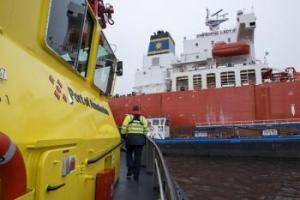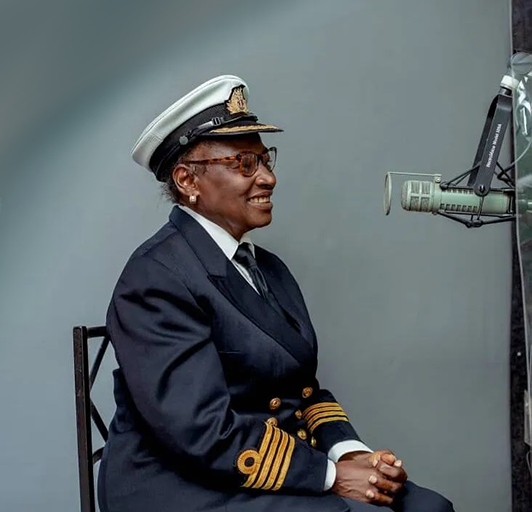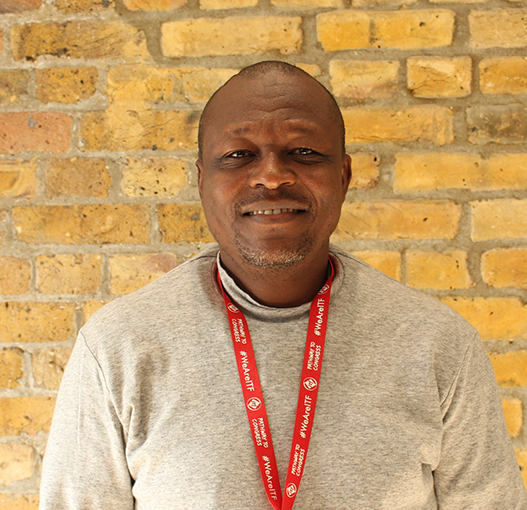Harbour Master
Harbour Masters
Worldwide there are approximately 3,000 merchant ports and the work of the Harbour Master can vary widely from country to country and from port to port even within the same country.


It was reported from Accra, Ghana, on 15 February that experts from the Maritime Just Transition Task Force had told Africa’s maritime leaders that their continent was well placed to take a large share of the new jobs and training places expected from shipping’s green transition.

Africa as a world leader
In a joint statement by UNGC1, ICS2 and ITF3 we learn that Africa has an opportunity to become a world leader in seafarer training and could yet claim many of the new green jobs available as the global shipping industry transitions to low- and zero-carbon fuels. Delegates were told of this at that day’s Green Shipping Conference held in Accra.
Growth markets
The conference was hosted by the Ghana Maritime Authority in partnership with the Danish Maritime Authority and the UN’s IMO. Delegates, including many Directors General of shipping, gathered representing 17 maritime authorities from across the African region. With 1.3 billion people and a combined GDP of $3.5 trillion dollars, Africa is one of the world’s biggest growth markets.
Helio Vicente, senior manager of trade policy and employment affairs at the International Chamber of Shipping asked: ‘Many shipowners are already ordering vessels with new designs, powered by alternative fuels and equipped with new technologies. More orders will be made of these new vessels. But the question is: do we have the crew to operate them?’
Research commissioned by the Maritime Just Transition Task Force found as many as 800,000 seafarers could require additional training by the mid-2030s to handle low and zero-carbon fuels such as hydrogen and ammonia if the IMO adopts a target for net zero emissions for shipping by 2050 in line with the 1.5 deg C goal of the Paris Agreement in July, as many expect it to.
As the industry cuts carbon pollution and moves away from fossil fuels to alternative low to zero carbon in anticipation of July’s decision, the training and maritime job opportunities are growing, the Task Force experts say,
An African centre of maritime excellence?
Addressing conference delegates, Vicente added: ‘There is already a shortfall in officers and almost 90,000 additional officers will be needed by 2026. Africa has the opportunity to step up and help provide the world with these seafarers and more, trained with the skills needed for the future.’ He said that a future global centre of maritime excellence for seafarer training could be based in Africa, bringing with it more jobs and wider benefits for the region.
In conclusion: ‘Africa can leverage the strategic opportunities of this shipping revolution. But our advice is that you need to move on this now, today.’
Africa’s important role
Mohammed Dauda Safiyanu, Africa Regional Secretary for the International Transport Workers’ Federation (ITF) stated: ‘We know that the decarbonisation of shipping, like any transport sector, will only be successful with a Just Transition for its people.’
He continued: ‘Our region, Africa, has an important role in developing the workforce of the future, and also to make sure our African seafarers are properly supported with good quality jobs.
‘To capitalise on this transition, we need to start bringing all parties – governments, employers, and trade unions – together, to align the various training, health and safety, and investment elements. ITF is here to see Africa succeed, and see our continent’s seafarers succeed. Seafarers move the world.’

Quality training makes a difference
Captain Catherine Haizel, maritime lecturer and seafarer, reflected: ‘Governments and employers need to listen to the voice of women seafarers about what we need from a life at sea. I know from many years as a seafarer and as a teacher of maritime studies, that quality training, conditions and benefits make the difference. I see a huge potential for a Just Transition to improve our industry so we can attract more women and more African seafarers.’
Captain Haizel is also ITF inspector for Ghana. She is lecturer at the Regional Maritime University in Ghana and is a member of the Ghana Merchant Navy Officers’ Association.
It is understood that the Task Force sees July as an important moment to achieve ambitious consensus and unlock the investment needed to unleash the green maritime jobs of the future.
1 https://www.unglobalcompact.org/
2 https://www.ics-shipping.org/
Picture captions
Main picture per www.samsa.org.za
©SAMSA
ITF Africa 2
ITF Africa Regional Secretary Mohammed Dauda Safiyanu.
Credit: ITF©.
ITF Africa 3
ITF Inspector for Ghana Captain Catherine Haizel.
Credit: ITF©.
Founded in 2017, MarineLabs delivers high-resolution, real-time, and historical wind, wave, and weather data, as well as hyper-local 10-day forecasting, from a growing network of cloud-connected, rugged sensor nodes.
The International Harbour Masters Association (IHMA) and the Port of Rotterdam Authority are pleased to announce the 15th International Harbour Masters Association Congress, to be held from 09–12 June 2026 at Theater Zuidplein in Rotterdam.